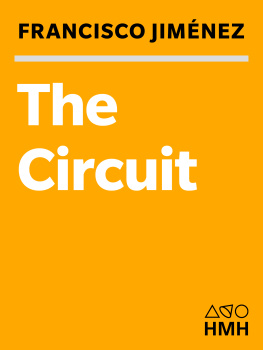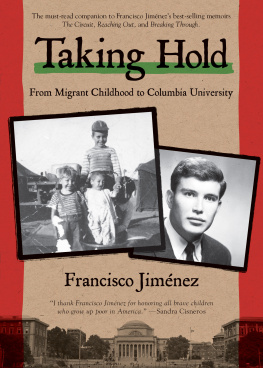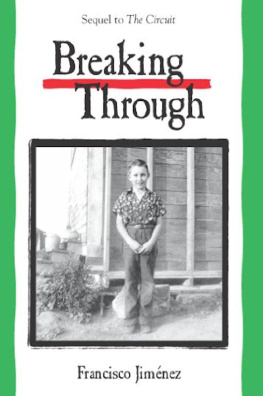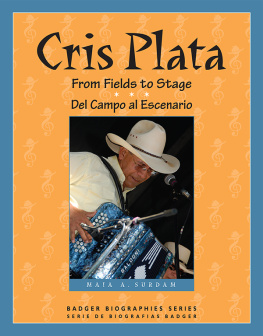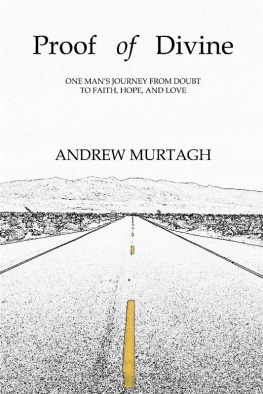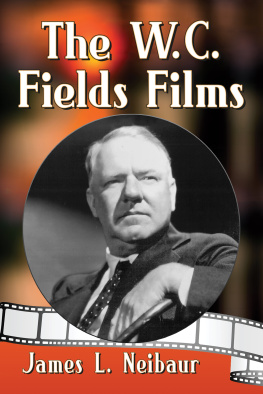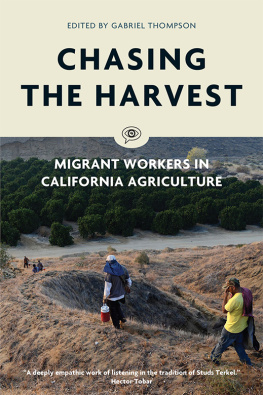Copyright 1997 by Francisco Jimnez
Authors note previously published in The Horn Book Magazine 1998
All rights reserved.
For information about permission to reproduce selections from this book, write to Permissions, Houghton Mifflin Harcourt Publishing Company, 215 Park Avenue South, New York, New York 10003.
www.hmhco.com
Previously published in paperback by the University of New Mexico Press
The following stories have been previously published:
The Circuit in The Arizona Quarterly;
Moving Still in California History;
Learning the Game in RiverSedge.
The Library of Congress has cataloged the print edition as follows:
Jimnez, Francisco, 1943
The circuit: stories from the life of a migrant child
Francisco Jimnez.
p. cm.
ISBN 0-395-97902-1
1. Mexican AmericansCaliforniaSocial life and customsFiction. 2. Migrant agricultural laborersCaliforniaFiction. 3. Mexican American familiesCaliforniaFiction, i. Title.
ps3560.i55c57 1997
813' FT .54dc21 97-4844
cip
e ISBN 978-0-547-37720-9
v2.1114
To my parents and my seven sisters and brothers:
Avelina/Rorra
Evangelina/Yerman
Mara Luisa/Licha
Roberto/Toto
Jos Francisco/Trampita
Juan Manuel/Torito
and Rubn/Carne Seca
Acknowledgments
There are many people who made this collection of short stories possible. I am indebted to my family whose lives are represented in this book. These stories are their stories as well as mine. These are also the stories of many migrant children of yesterday and today. I thank them all and ask their forgiveness for taking the liberty to write about them, knowing full well my limitations as a writer. Their courage, tenacity, and unwavering hope in the midst of adversity have been a constant inspiration to me.
Thanks to the many teachers and students who have written to me over the years about my work. Their particular interest in my story The Circuit and their encouragement to write more stories about my life have motivated me to continue writing.
I am grateful to my friends and colleagues who guided me along the way with constructive criticism: Cedric Busette, mi amigo del alma; Kate Martin Fergueson; and Alma Garcia. A special thanks to my immediate family for patiently listening to various drafts of the stories and offering valuable comments on them.
I would like to express my sincere gratitude to my teachers whose faith in my ability and whose guidance helped me break the migrant circuit.
I am thankful to Santa Clara University for giving me the time and encouragement to complete this book.
Finally, I am also indebted to my editor, Andrea Otaez, for her valuable suggestions for improvements and for her support.
Under the Wire
La frontera is a word I often heard when I was a child living in El Rancho Blanco, a small village nestled on barren, dry hills several miles north of Guadalajara, Mexico. I heard it for the first time back in the late 1940s when Pap and Mam told me and Roberto, my older brother, that someday we would take a long trip north, cross la frontera, enter California, and leave our poverty behind.
I did not know exactly what California was either, but Paps eyes sparkled whenever he talked about it with Mam and his friends. Once we cross la frontera, well make a good living in California, he would say, standing up straight and sticking out his chest.
Roberto, who is four years older than I, became excited every time Pap talked about the trip to California. He didnt like living in El Rancho Blanco, especially after visiting our older cousin, Fito, in Guadalajara.
Fito had left El Rancho Blanco. He was working in a tequila factory and living in a two-bedroom house that had electricity and a water well. He told Roberto that he, Fito, didnt have to get up at four in the morning anymore, like my brother, to milk the five cows by hand and carry the milk in a large aluminum can on horse for several miles to the nearest road, where a truck would transport it to town to sell. He didnt have to go to the river for water, sleep on dirt floors, or use candles for light.
From then on, about the only thing Roberto liked about living in El Rancho Blanco was hunting for chicken eggs and attending church on Sundays.
I liked looking for eggs and going to Mass too. But what I enjoyed most was listening to stories. In the evenings, after supper, Paps brother, to Mauricio, and his family came over to visit. We sat around a fire built with dry cow chips and told stories while shaking out grain from ears of corn.
On one such evening Pap made the announcement: We were going to make the long-awaited trip across la frontera to California. Days later we packed our belongings in a suitcase and took the bus to Guadalajara to catch the train. Pap bought tickets on a second-class train, Ferrocarriles Nacionales de Mxico. I had never seen a train before. It looked like metal huts on wheels strung together. We climbed in and took our seats. I stood to look out the window. As the train started to move, it jerked and made a loud clattering sound, like hundreds of milk cans crashing. I got scared and lost my balance. Pap caught me and told me to sit. I swung my legs, following the rhythm of the train. Roberto sat across from me, next to Mam. He had a big grin on his face.
We traveled for two days and nights. During the night, we didnt get much sleep. The wooden seats were hard, and the train made loud noises, blowing its whistle and grinding its brakes. At the first train stop I asked Pap, Is this California?
No mijo, were not there yet, he answered patiently. We have many more hours to go.
Noting that Pap had closed his eyes, I turned to Roberto and asked, Whats California like?
I dont know, he answered, but Fito told me that people there sweep money off the streets.
Where did Fito get that idea? Pap said, opening his eyes and laughing.
From Cantinflas, Roberto said assuredly. He said Cantinflas said it in a movie.
Cantinflas was joking, Pap responded, chuckling. But its true that life is better there.
I hope so, Mam said. Then, putting her arm around Roberto, she added softly, Dios lo quiera.
The train slowed down. I looked out the window and saw we were entering another town. Is this it? I asked.
Otra vez la burra al trigo! Pap said, frowning and rolling his eyes. Ill tell you when we get there!
Be patient, Panchito, Mam said, smiling. Well get there soon.
When the train stopped in Mexicali, Pap told us to get off. Were almost there, he said, looking at me. We left the station. Pap carried our dark brown suitcase. We followed behind him until we reached a barbed wire fence. According to Pap, this was la frontera. He pointed out that across the gray wire barricade was California, that famous place I had heard so much about. On both sides of the fence were armed guards dressed in green uniforms. Pap called them la migra, and explained that we had to cross the fence to the other side without being seen by them.
Late that night, we walked for several miles away from town. Pap, who led the way, paused, looked all around to make sure no one could see us, and headed toward the fence. We walked along the wire wall until Pap spotted a small hole underneath the fence. Pap got on his knees and, with his hands, made the opening larger. We all crawled through like snakes. A few minutes later, we were picked up by a woman whom Pap had contacted in Mexicali. She had promised to pick us up in her car and drive us, for a fee, to a place where we would find work.
Next page
